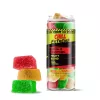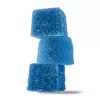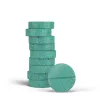Cannabis enthusiasts and those exploring the diverse world of cannabinoids often encounter the dynamic duo of hemp-derived delta 9 and THCA. Each offers a unique array of effects and potential benefits, shaping the landscape of cannabis consumption.
As we delve into their properties, this comparison aims to elucidate the nuances, enabling users to navigate the world of cannabinoids with clarity and understanding.
Through an in-depth examination of delta 9 and THCA, this article endeavors to elucidate their individual merits, potential drawbacks, legal status, health implications, and real-world user experiences.
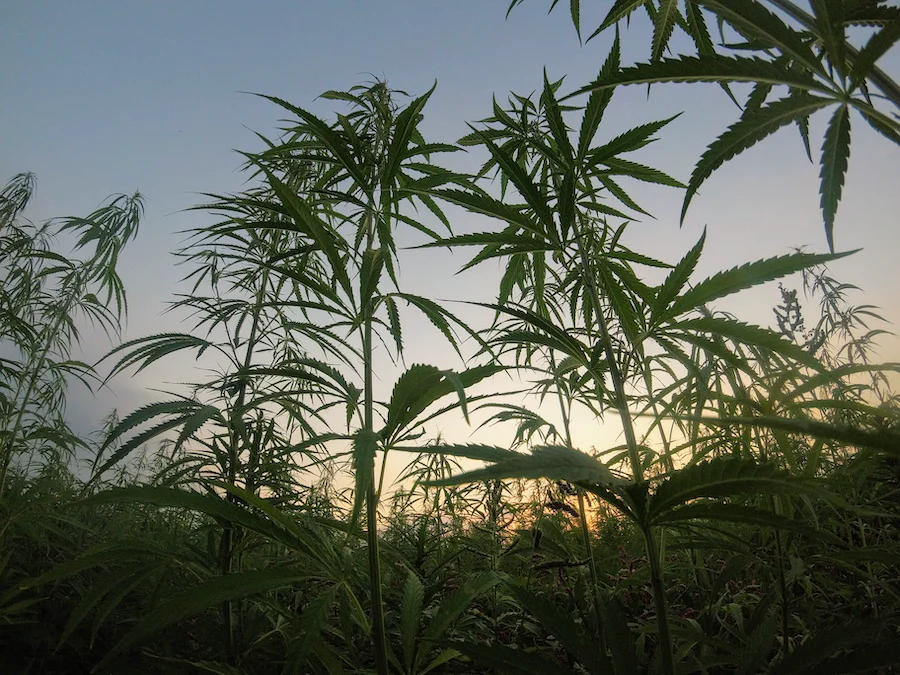
Understanding Hemp-Derived Delta 9
Delta 9 derived from hemp is a primary psychoactive cannabinoid present in cannabis plants, renowned for its intoxicating effects. This compound is predominantly sourced from the flowering tops and leaves of cannabis plants, notably in strains with higher THC concentrations.
Delta 9 induces a range of effects, including euphoria, relaxation, altered sensory perception, and increased appetite, owing to its interaction with the endocannabinoid system. Its potency varies across products, influencing the intensity and duration of its psychoactive properties.
The strength of delta 9 THC can differ significantly, affecting its overall potency and the depth of its effects. Various factors such as strain genetics, consumption method, dosage, and individual tolerance levels contribute to the perceived strength and potency of delta 9.
Understanding THCA
THCA, tetrahydrocannabinolic acid, is a non-psychoactive cannabinoid found in raw cannabis that converts to THC upon heating. It's abundant in freshly harvested or raw cannabis plants before decarboxylation occurs.
THCA doesn't induce psychoactive effects on its own but offers potential therapeutic benefits like anti-inflammatory properties and possibly aiding in sleep. However, its full medicinal potential requires further research.
THCA's strength and potency differ from THC due to its non-psychoactive nature. Its potential varies based on its interaction with the endocannabinoid system, but it doesn't produce the intoxicating effects commonly associated with THC.
Though THCA is non-psychoactive in its raw form, it converts to THC through a process known as decarboxylation.
The Magic of Decarboxylation
Once THCA undergoes decarboxylation, a process through which heat is applied to THCA, it loses its carboxylic acid, transforming it into THC and adopting all of the better known compound’s effects, psychoactive properties, and benefits.
This means that when you smoke, vape, or bake THCA, it becomes THC, causing a psychoactive high, while consuming raw THCA does not cause these effects.
Comparative Analysis: Strength and Effects
Hemp-derived delta 9 is known for its psychoactive potency, inducing a pronounced "high" due to its direct interaction with the endocannabinoid system. In contrast, THCA, before decarboxylation, lacks psychoactivity.
Delta 9's potency lies in its ability to bind with CB1 receptors, while THCA's effects are subtle until converted into THC via heat. Once converted, THCA that becomes THC creates the same exact effects as delta 9, including potency, duration, and more.
The psychoactive effects of delta 9 are robust and immediate, often leading to a rapid onset of euphoria, altered perception, and relaxation.
On the other hand, THCA's effects remain non-intoxicating until decarboxylation, which can occur through smoking, vaping, or heating for edibles. The conversion process, however, means slower onset and milder effects compared to delta 9.
|
Aspect |
Hemp-Derived Delta 9 |
THCA |
|---|---|---|
|
Psychoactive Potency |
High potency, immediate effects |
Low potency before conversion |
|
Effects |
Rapid onset of euphoria, altered perception, relaxation |
Non-intoxicating until conversion, subtler effects |
|
Duration of Effects |
Prolonged, lasting several hours |
Varies, often shorter duration |
|
Onset Times |
Rapid onset, felt within minutes |
Requires conversion, slower onset |
Regarding the duration of effects, delta 9 typically induces a more prolonged high, lasting several hours, while THCA's effects, after conversion, can vary but often have a shorter duration.
The onset times also differ, with delta 9's effects felt quickly, usually within minutes, while THCA requires time for conversion, impacting the time it takes to feel its effects.
Legal Considerations
Hemp-derived delta 9, often categorized under THC (Tetrahydrocannabinol), falls within a complex legal landscape.
In certain regions or countries, Delta 9 extracted from hemp might be legal if it complies with the stipulated THC limits (usually below 0.3% THC content) defined in regulations such as the United States' Farm Bill.
However, the legality varies widely across different jurisdictions, and users should verify local laws before acquiring or using delta 9 products.
Legal Considerations for Delta 9 and THCA
THCA, in its raw, unheated form, is generally considered non-psychoactive and is often found in hemp-derived products.
Its legal status might vary based on interpretations of cannabis regulations. While THCA doesn't exhibit psychoactive effects until it undergoes decarboxylation to convert into THC, specific legal nuances concerning THCA could impact its status in different areas despite its federal legality.
Influence of Legal Differences on User Choice
The legal distinctions between hemp-derived delta 9 and THCA could significantly influence user choices. Some users may prefer delta 9 due to its psychoactive effects, seeking products with permissible THC content.
Meanwhile, others might opt for THCA-containing products. As previously states, this compound can be consumed in its raw or decarboxylated form, with no psychoactive effects in the former and the same effects as delta 9 in the latter.
It's crucial for consumers to be aware of the legal framework surrounding these cannabinoids to make informed decisions aligned with the regulations in their respective areas. Always consult local laws or regulations before purchasing or using any hemp-derived products containing delta 9 or THCA.

Safety and Health Implications
Hemp-derived delta 9, particularly in higher doses, might induce adverse effects like anxiety, paranoia, or increased heart rate in susceptible individuals.
Prolonged or excessive use of delta 9 THC could potentially lead to dependency or impact cognitive function, especially in adolescents or those with predispositions to mental health issues.
THCA in its unheated form, is generally considered non-psychoactive and has no identified significant health risks.
Recommended Usage and Dosages
Recommended usage or dosage guidelines for these compounds might vary due to differences in individual tolerances and the lack of standardized dosing protocols.
Users are encouraged to start with low doses, especially with delta 9 or decarboxylated THCA, and gradually increase as needed while monitoring their response.
Dosage recommendations for THCA, particularly in unheated forms, are less established and might require further research for precise guidelines, but seems to have the same safety profile as other non-intoxicating cannabinoids such as CBD.
Insights from Scientific Studies and Medical Opinions
Scientific studies on the health implications of delta 9 THC are more extensive, showcasing its potential for therapeutic benefits while highlighting associated risks.
However, similar comprehensive studies on THCA, especially regarding its long-term safety profile or optimal dosages, are limited. Medical opinions regarding the use of these compounds might vary, with professionals recommending cautious use and adherence to local regulations.
As with any substance, individual responses to delta 9 and THCA can vary. Users are encouraged to consult healthcare professionals for personalized advice or guidance before using products containing these compounds, especially if they have pre-existing medical conditions or are on other medications.
User Experiences and Testimonials
Users of hemp-derived delta 9 often report a range of experiences. Some users highlight its ability to induce relaxation, euphoria, or pain relief. However, experiences may vary widely based on dosage, individual tolerance, and the strain used.
Several users find delta 9 beneficial for managing stress, insomnia, or chronic pain, while others might report adverse effects like anxiety or paranoia, particularly with higher doses.
Anecdotal evidence related to THCA often emphasizes its non-psychoactive nature when consumed in raw or unheated forms.
Users might cite its potential for providing relief from inflammation, pain, or nausea without the typical "high" associated with THC. In its decarboxylated form, users report THCA feeling exactly like THC, which makes sense given the fact that, ya know, THCA becomes THC upon decarboxylation.
Frequently Asked Questions: Delta 9
Lots of people have questions about delta 9. We have the answers to the most common.
Is hemp-derived delta 9 THC legal?
Delta 9 THC derived from hemp with less than 0.3% THC content is federally legal. However, specific state regulations may vary.
What are the potential side effects of delta 9 THC?
Common side effects may include dry mouth, red eyes, impaired coordination, anxiety, or increased heart rate. The intensity varies based on dosage and individual sensitivity.
What are the typical uses of hemp-derived delta 9 THC?
Delta 9 THC is commonly used for managing pain, inducing relaxation, alleviating stress, enhancing appetite, or aiding sleep.
Frequently Asked Questions: THCA
A cannabinoid that just recently entered the recreational spotlight, THCA has arisen questions in many users. Here are some of the most frequent.
Does THCA get you high?
THCA itself is non-psychoactive. It requires decarboxylation, usually through heat exposure, to convert into psychoactive THC.
What are the potential health benefits of THCA?
THCA may possess anti-inflammatory, anti-emetic, and neuroprotective properties. It's currently being studied for its potential in managing pain, inflammation, and other health conditions, but more scientific research is required before any solid claims can be made.
How can THCA be consumed?
THCA is commonly found in raw cannabis or cannabis products. It can be consumed by juicing raw cannabis, adding it to food or beverages, or taking cannabis tinctures that haven't undergone decarboxylation.
Additionally, THCA that causes psychoactive effects can be consumed employing any method that uses heat, such as vaping, smoking, or baking.
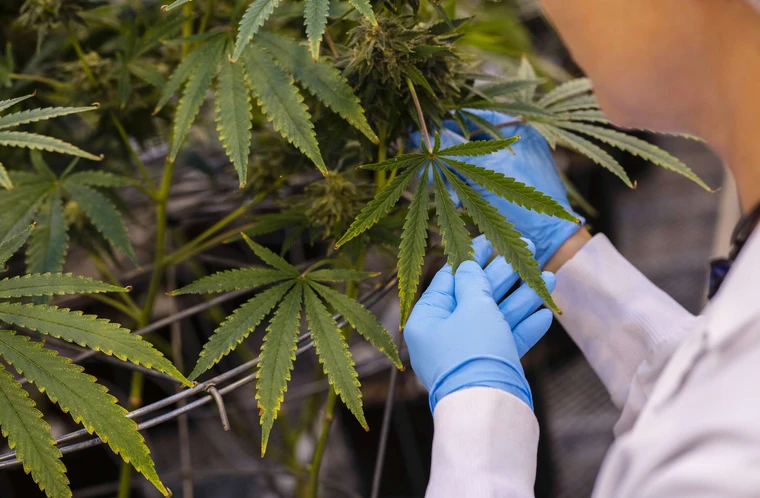
To Wrap Things Up
The comparison between hemp-derived delta 9 THC and raw THCA highlights distinct differences in their effects and potency. Delta 9 THC, renowned for its psychoactive properties, offers immediate and intense effects, favored by those seeking its intoxicating impact.
In contrast, raw THCA, as a non-intoxicating precursor to THC, holds promise for its potential therapeutic benefits without inducing a high. These compounds differ significantly in their effects and applications.
In its decarboxylated form, THCA is just THC, so it should be treated as delta 9 when it comes to effects, potencies, and dosages.
Ultimately, the choice between hemp-derived delta 9 THC and THCA is a personal one, shaped by individual preferences, legal considerations, and health objectives. In conclusion, the choice between raw THCA, decarboxylated THCA, or delta 9, there’s no wrong choice! It all depends on what you’re looking for.



